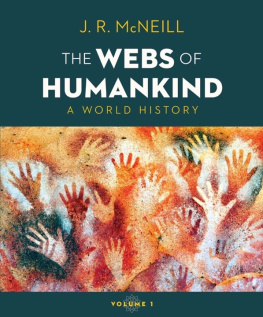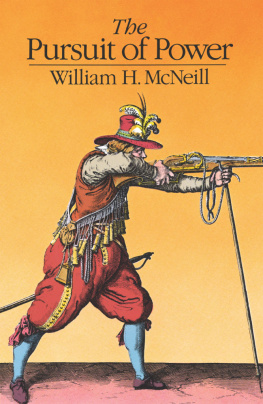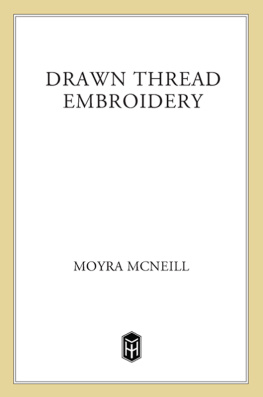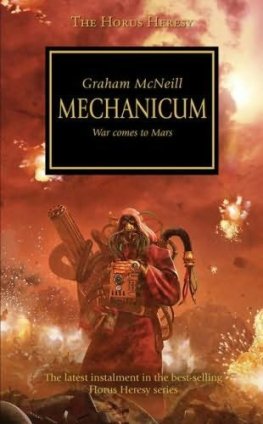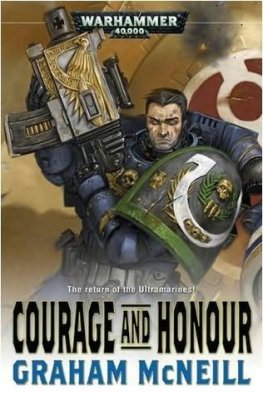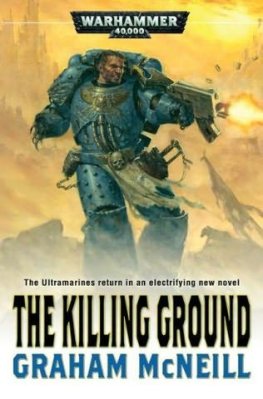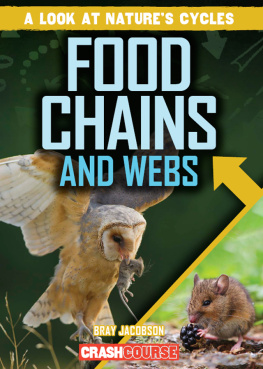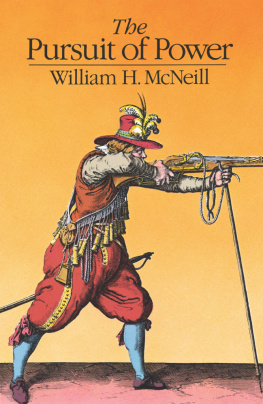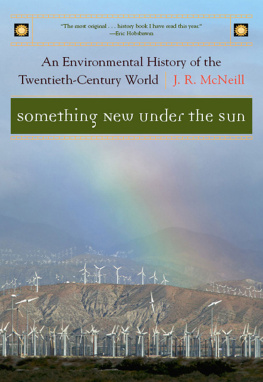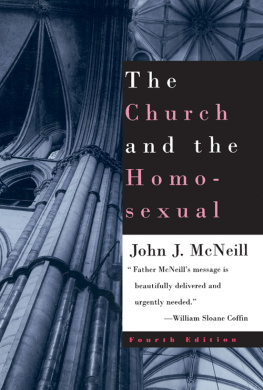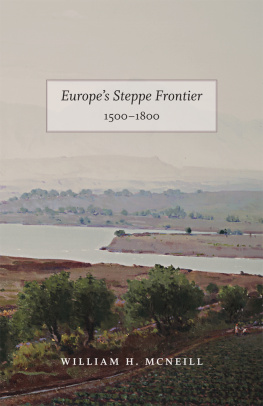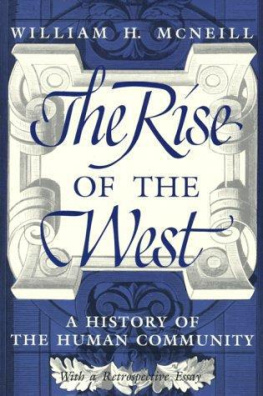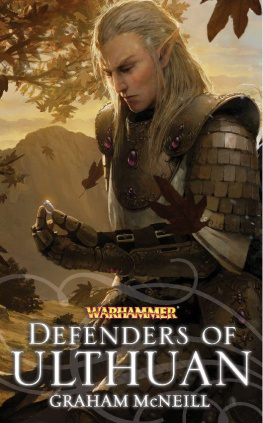McNeill - Webs of Humankind : A World History (9780393417760)
Here you can read online McNeill - Webs of Humankind : A World History (9780393417760) full text of the book (entire story) in english for free. Download pdf and epub, get meaning, cover and reviews about this ebook. publisher: W W Norton College, genre: Romance novel. Description of the work, (preface) as well as reviews are available. Best literature library LitArk.com created for fans of good reading and offers a wide selection of genres:
Romance novel
Science fiction
Adventure
Detective
Science
History
Home and family
Prose
Art
Politics
Computer
Non-fiction
Religion
Business
Children
Humor
Choose a favorite category and find really read worthwhile books. Enjoy immersion in the world of imagination, feel the emotions of the characters or learn something new for yourself, make an fascinating discovery.
- Book:Webs of Humankind : A World History (9780393417760)
- Author:
- Publisher:W W Norton College
- Genre:
- Rating:3 / 5
- Favourites:Add to favourites
- Your mark:
- 60
- 1
- 2
- 3
- 4
- 5
Webs of Humankind : A World History (9780393417760): summary, description and annotation
We offer to read an annotation, description, summary or preface (depends on what the author of the book "Webs of Humankind : A World History (9780393417760)" wrote himself). If you haven't found the necessary information about the book — write in the comments, we will try to find it.
Webs of Humankind : A World History (9780393417760) — read online for free the complete book (whole text) full work
Below is the text of the book, divided by pages. System saving the place of the last page read, allows you to conveniently read the book "Webs of Humankind : A World History (9780393417760)" online for free, without having to search again every time where you left off. Put a bookmark, and you can go to the page where you finished reading at any time.
Font size:
Interval:
Bookmark:

CHAPTER 1
CHAPTER 2
CHAPTER 3
CHAPTER 4
CHAPTER 5
CHAPTER 6
CHAPTER 7
CHAPTER 8
CHAPTER 9
CHAPTER 10
CHAPTER 11
CHAPTER 12
CHAPTER 13
CHAPTER 14
CHAPTER 15
CHAPTER 16
The Webs of Humankind offers three text features that reinforce and enrich the books presentation of world history. They are meant to support student work with primary sources and strengthen their engagement with world history questions.
The first is a primary-source feature called Considering the Evidence, which appears in every chapter. Authored by Daren Ray (Auburn University), Considering the Evidence presents text documents and images of art and artifacts for analysis by students. Each box includes a contextual headnote and study questions. The primary sources all shed light on the events and developments of each chapter.
The second feature, Puzzles in World History, comprises short essays by J. R. McNeill on compelling world history questions that emerge from the text discussions. There are seven Puzzles features integrated throughout the book. They can be used to key class discussion and/or student writing.
The third, The Human Web, is an infographic feature that combines images, text, and maps to illustrate webs of interaction at key periods. Each volume of the textbook offers three Human Web features. Each one is built around a central map of an important web, with images and text reflecting the goods, technology, beliefs, and material culture shared by peoples across the web. Each includes an introductory headnote by J. R. McNeill and study questions based on the feature and the chapter reading.
CONSIDERING THE EVIDENCE Our Cousin Neo
CONSIDERING THE EVIDENCE Crocodiles in the Sahara
CONSIDERING THE EVIDENCE Jomon Pots and Potters
PUZZLES IN WORLD HISTORY Why Do Humans Behave Like Ants?
CONSIDERING THE EVIDENCE The Banquet Stele of Ashurnasirpal II
CONSIDERING THE EVIDENCE Death and Taxes in the Mauryan Empire
THE HUMAN WEB The Nile-Ganges Web, 200 BCE
CONSIDERING THE EVIDENCE Herodotus on the Persians
CONSIDERING THE EVIDENCE The Great Learning
PUZZLES IN WORLD HISTORY Why Is Patriarchy So Widespread in World History?
CONSIDERING THE EVIDENCE Hortensias Speech
CONSIDERING THE EVIDENCE The Periplus of the Erythraean Sea
CONSIDERING THE EVIDENCE A Maya Bowl for Cocoa
PUZZLES IN WORLD HISTORY Why Were Complex Societies in the Americas More Fragile Than Those in Eurasia and Egypt?
CONSIDERING THE EVIDENCE The Succession to Muhammad
CONSIDERING THE EVIDENCE Tang Poetry
CONSIDERING THE EVIDENCE Merchant Solidarity in the Indian Ocean World
THE HUMAN WEB The Indian Ocean World, ca. 1400
CONSIDERING THE EVIDENCE Religion and Diplomacy in Khazaria
PUZZLES IN WORLD HISTORY Why Were Most Old World Web Empires So Fragile?
CONSIDERING THE EVIDENCE Aztec Wealth
CONSIDERING THE EVIDENCE Portuguese Reasoning about Skin Color
THE HUMAN WEB The Columbian Exchange, 14921800
The Webs of Humankind presents a set of pedagogical features intended to guide introductory students through the chapters and support their understanding of world history.
All chapters open with a list of Focus Questions that correspond to the major section headings in the chapter. These questions, which appear also in the relevant running heads at the tops of pages, are meant to alert students to the key developments in each section. All chapters also open with a Chronology of major events and an immersive narrative vignette to draw students into the reading. The chapters end with a summary Conclusion and a Chapter Review page that includes Review Questions, a list of the Key Terms (with page references) that appear in bold in the chapter, and a Further Reading list compiled and annotated by J. R. McNeill. A Glossary at the end of the book includes definitions of all key terms and a prununciation guide.
The author also collaborated on the art program, which includes more than 700 images, and on the more than 150 original maps, all with captions by the author.
W. W. Norton has a long history of delivering robust and carefully designed digital resource packages to support teaching and learning. The resources described here have been built from the ground upwith guidance and input from active world history instructorsspecifically for use with The Webs of Humankind by J. R. McNeill.
The following resources are available using the access card at the front of this text.
InQuizitive is Nortons award-winning adaptive learning tool that personalizes the learning experience for students and enhances their understanding of the key themes and objectives from each chapter. This new InQuizitive course, written for The Webs of Humankind, features hundreds of interactive questions tagged to each chapters Focus Questionsincluding questions based on maps, historical images, and primary-source documentsall of which are delivered in an engaging game-like environment with detailed, answer-specific feedback. InQuizitive can be integrated directly into your existing learning management system for easy student access.
In efficacy studies, when history students completed InQuizitive activities prior to taking a summative quiz, their quiz grades increased by an average of 16 percentage points. Go to www.wwnorton.com/inquizitive for more information.
The History Skills Tutorials are interactive, online modules that support student development of key skills for the world history coursesuch as analysis and interpretation of primary-source documents, images, and maps. With interactive practice assessments, helpful guiding feedback, and videos with John McNeill modeling source analysis, these tutorials teach students the critical analysis skills that they will put to use in their academic and professional careers. These tutorials can be integrated directly into your existing learning management system for easy student access.
Font size:
Interval:
Bookmark:
Similar books «Webs of Humankind : A World History (9780393417760)»
Look at similar books to Webs of Humankind : A World History (9780393417760). We have selected literature similar in name and meaning in the hope of providing readers with more options to find new, interesting, not yet read works.
Discussion, reviews of the book Webs of Humankind : A World History (9780393417760) and just readers' own opinions. Leave your comments, write what you think about the work, its meaning or the main characters. Specify what exactly you liked and what you didn't like, and why you think so.

